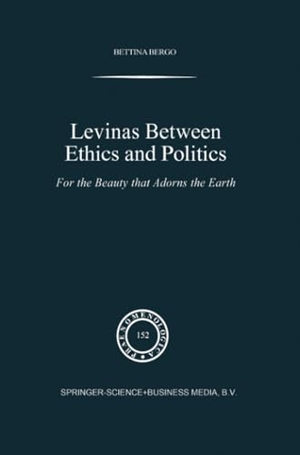Für statistische Zwecke und um bestmögliche Funktionalität zu bieten, speichert diese Website Cookies auf Ihrem Gerät. Das Speichern von Cookies kann in den Browser-Einstellungen deaktiviert werden. Wenn Sie die Website weiter nutzen, stimmen Sie der Verwendung von Cookies zu.
Cookie akzeptieren
- Springer Netherlands
- 2010
- Taschenbuch
- 324 Seiten
- ISBN 9789048152148
The act of thought-thought as an act-would precede the thought thinking or becoming conscious of an act. The notion of act involves a violence essentially: the violence of transitivity, lacking in the transcendence of thought. . . Totality and Infinity The work of Emmanuel Levinas revolves around two preoccupations. First, his philosophical project can be described as the construction of a formal ethics, grounded upon the transcendence of the other human being and a subject's spontaneous responsibility toward that other. Second, Levinas has written extensively on, and as a member of, the cultural and textual life of Judaism. These two concerns are intertwined. Their relation, however, is one of considerable complexity. Levinas' philosophical project stems directly from his situation as a Jewish thinker in the twentieth century and takes its particular form from his study of the Torah and the Talmud. It is,
Mehr
Weniger
zzgl. Versand
in Kürze